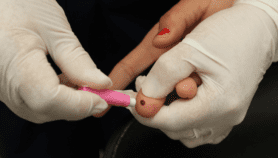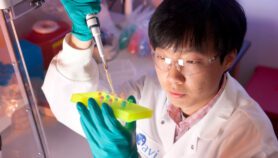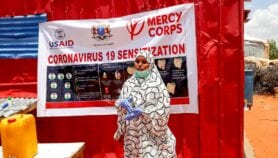By: Wu Chong
Send to a friend
The details you provide on this page will not be used to send unsolicited email, and will not be sold to a 3rd party. See privacy policy.
[BEIJING] China, the world’s main producer of traditional and herbal medicines, has launched an international project to modernise the sector.
Yesterday (4 July) the Ministry of Science and Technology pledged an initial 100 million yuan (US$12.5 million) for projects that focus on developing new treatments for diseases such as cancer and HIV/AIDS.
It is the first time that China has initiated a multinational research project of this kind, which it hopes will provide an opportunity to boost health research in developing nations.
Jin Xiaoming, a senior ministry official says it is likely that China will launch research on artemisinin — a herbal medicine regarded as the best treatment for malaria — with African countries such as Kenya and South Africa.
The scheme has already attracted countries including the United States, Japan and Singapore, says Shang Yong, vice minister of science and technology.
The first 50 programmes, which will be selected by the ministry and matched with international partners, are due to start by the end of the year.
China hopes the project will help increase its share of the global market for traditional medicines.
Until now, traditional medicine’s entry into global markets has been hampered by a lack of consensus in how to measure its efficacy. Thus the project will also include efforts to develop international standards for traditional remedies.
“It is much cheaper to develop a new herbal medicine than a Western one,” says Shang. “So our programmes will have a strong appeal for transnational companies.”
Such companies will be able to express their wish to participate through their embassy or their home country’s science administration.
Shang added that companies, rather than colleges or research institutes, would play the major role in each programme, with an aim to “foster domestic pharmacists”.
Chinese drug companies will gain extra funding and access to advanced facilities in developed nations to help them develop their traditional medicines.













